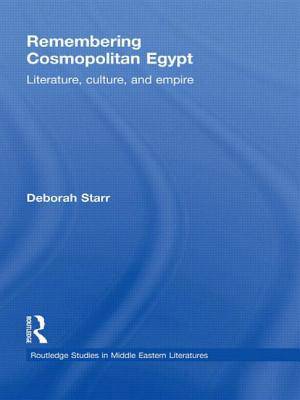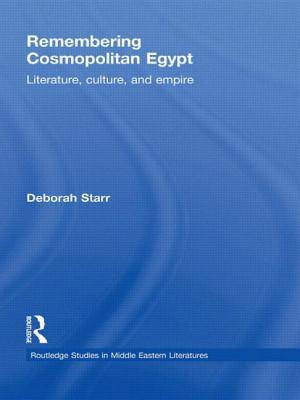
- Retrait gratuit dans votre magasin Club
- 7.000.000 titres dans notre catalogue
- Payer en toute sécurité
- Toujours un magasin près de chez vous
- Retrait gratuit dans votre magasin Club
- 7.000.0000 titres dans notre catalogue
- Payer en toute sécurité
- Toujours un magasin près de chez vous
Description
Remembering Cosmopolitan Egypt examines the link between cosmopolitanism in Egypt, from the nineteenth century through to the mid-twentieth century, and colonialism. While it has been widely noted that such a relationship exists, the nature and impact of this dynamic is often overlooked. Taking a theoretical, literary and historical approach, the author argues that the notion of the cosmopolitan is inseparable from, and indebted to, its foundation in empire.
Since the late 1970s a number of artistic works have appeared that represent the diversity of ethnic, national, and religious communities present in Egypt in the nineteenth and early twentieth centuries. During this period of direct and indirect European domination, the cosmopolitan society evident in these texts thrived. Through detailed analysis of these texts, which include contemporary novels written in Arabic and Hebrew as well as Egyptian films, the implications of the close relationship between colonialism and cosmopolitanism are explored.
This comparative study of the contemporary literary and cultural revival of interest in Egypt's cosmopolitan past will be of interest to students of Middle Eastern Studies, Literary and Cultural Studies and Jewish Studies.
Spécifications
Parties prenantes
- Auteur(s) :
- Editeur:
Contenu
- Nombre de pages :
- 224
- Langue:
- Anglais
- Collection :
Caractéristiques
- EAN:
- 9780415836456
- Date de parution :
- 14-02-13
- Format:
- Livre broché
- Format numérique:
- Trade paperback (VS)
- Dimensions :
- 156 mm x 234 mm
- Poids :
- 317 g

Les avis
Nous publions uniquement les avis qui respectent les conditions requises. Consultez nos conditions pour les avis.






